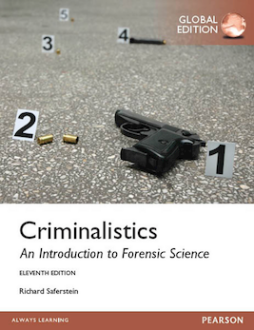
Additional Information
Book Details
Abstract
For introductory courses in Forensic Science and Crime Scene Investigation.
This best-selling text, written for the non-scientist, is appropriate for a wide variety of students, including criminal justice, law enforcement, law, and more!
Criminalistics: An Introduction to Forensic Science, 11e, strives to make the technology of the modern crime laboratory clear and comprehensible to the non-scientist. The nature of physical evidence is defined, and the limitations that technology and current knowledge impose on its individualization and characterization are examined. By combining case stories with applicable technology, Criminalistics endeavors to capture the pulse and fervor of forensic science investigations. A major portion of the text centers on discussions of the common items of physical evidence encountered at crime scenes. These chapters include descriptions of forensic analysis, as well as updated techniques for the proper collection and preservation of evidence at crime scenes. Particular attention is paid to the meaning and role of probability in interpreting the evidential significance of scientifically evaluated evidence.
Teaching and Learning
Written by a well-known authority in forensic science, this text introduces the non-scientific student to the field of forensic science. It provides:
- Clear and comprehensible writing for the non-scientific student: Makes text appropriate for a wide variety of students, including criminal justice, law enforcement, and more
- Comprehensive, up-to-date coverage of forensics and its role in criminal investigation: Captures the pulse and intensity of forensic science investigations and the attention of the busiest student
- Outstanding pedagogical features: Supports both teaching and learning
